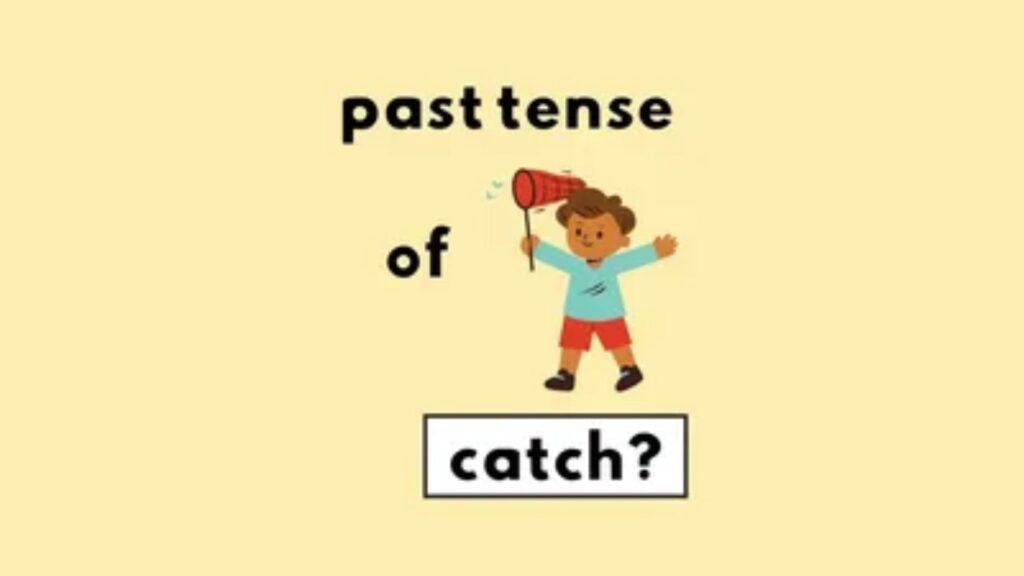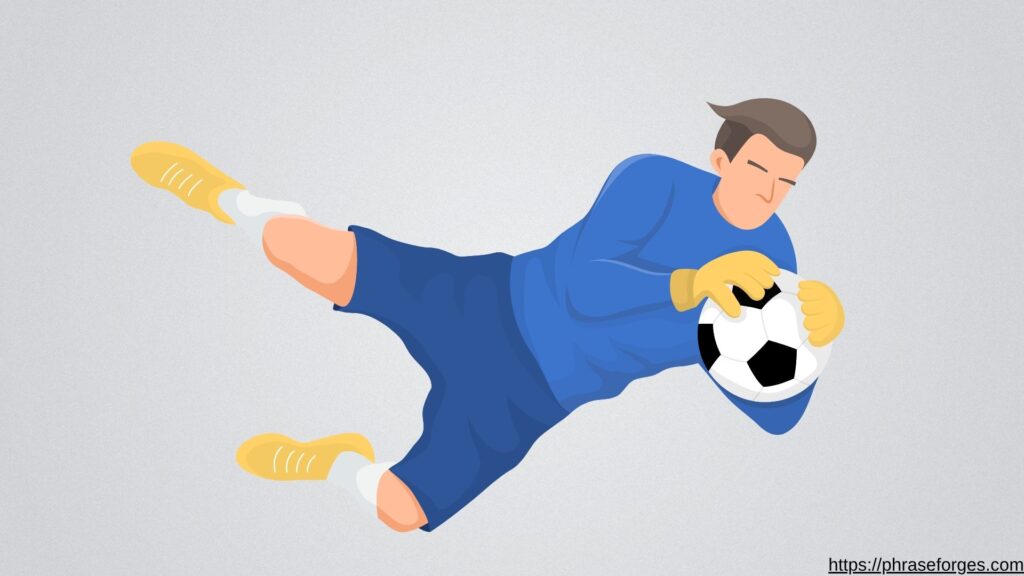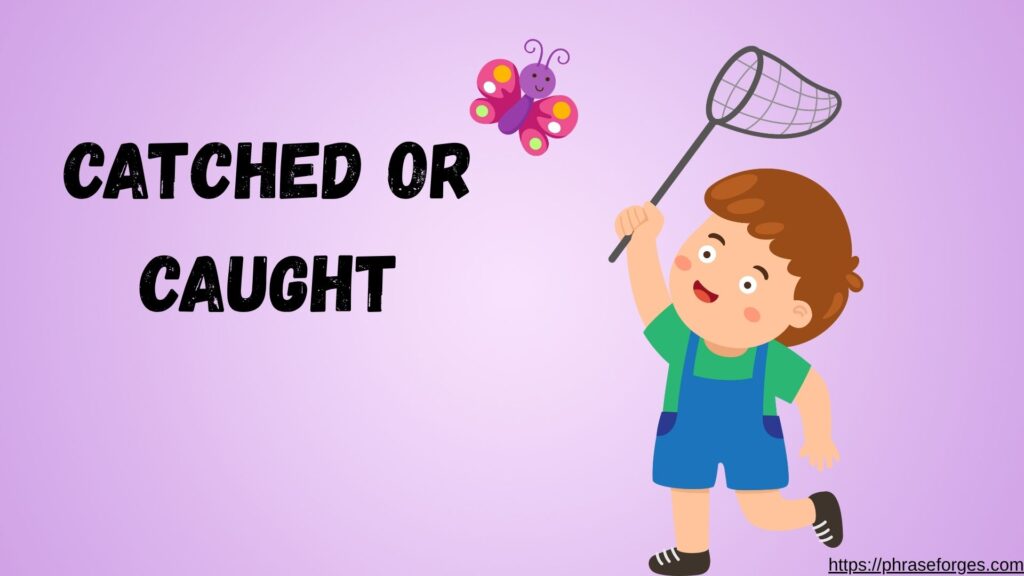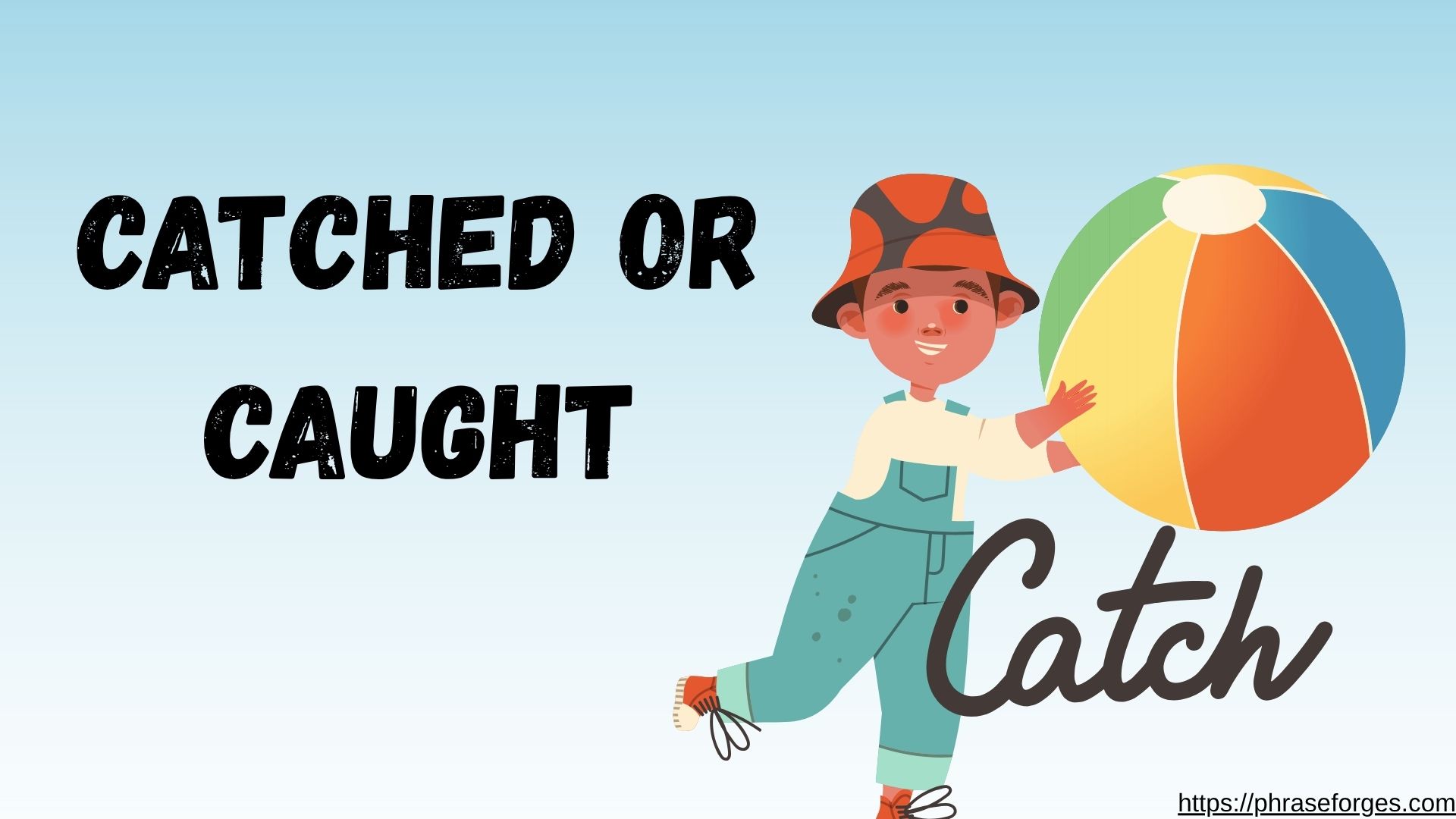If you’ve ever hesitated between saying “I catched the ball” or “I caught the ball,” you’re not alone. English learners often stumble here because of how irregular verbs break standard rules. The quick answer? “Caught” is the correct past tense of “catch,” while “catched” is grammatically incorrect in modern English.
In this guide, we’ll break down why “caught” is right, explain its connection to irregular verbs, and provide real-world examples emails, conversations, and even grammar tips to ensure you never second-guess yourself again.
✅ What’s the Past Tense of Catch?

The past form of “catch” is “caught.” Unlike regular verbs (like “walk” → “walked”), “catch” is an irregular verb that changes form completely.
- Base form: catch
- Simple past: caught
- Past participle: caught
So, instead of saying “I catched the bus,” the correct phrase is:
➡️ “I caught the bus.”
This pattern mirrors other verbs in English that end with “-aught,” such as:
- teach → taught → taught
- buy → bought → bought
- bring → brought → brought
- seek → sought → sought
These verbs follow an irregular verb rhyming pattern where spelling shifts dramatically from base to past tense.
❌ Why “Catched” Is Incorrect

Historically, “catched” did exist in older English, but it’s no longer used in modern grammar. Today, saying “she catched the ball” sounds awkward and incorrect.
✅ Correct: “She caught the ball during the game.”
❌ Incorrect: “She catched the ball during the game.”
Here’s a quick grammar tip: Any verb ending with “-tch” (like catch, watch, or fetch) doesn’t form past tense by just adding “-ed” if it’s irregular.
📧 Scenario Example: Email Using “Caught”
Here’s how “caught” fits naturally in an email:
Subject: Sorry, I Caught a Cold
Hi Emily,
I wanted to let you know I won’t be in the office today. Unfortunately, I’ve caught this nasty cold that’s been going around. I’ll rest up and be back tomorrow if I feel better.
Thanks for understanding!
Mark
Notice how “I’ve caught” uses the present perfect tense, highlighting an action that affects the present.
🏃 Everyday Usage Examples of “Caught”
Here are some common sentence structures:
- Simple past tense: “I caught the last train home.”
- Present perfect tense: “We’ve caught several errors in the report.”
- Future perfect tense: “By next week, I will have caught up on all my work.”
These examples cover different verb tenses while reinforcing the correct conjugation of “catch.”
🔥 Common Mistakes & Fixes
Here are typical errors and how to correct them:
- ❌ “She catched my attention during the presentation.”
✅ “She caught my attention during the presentation.” - ❌ “I catched the dog running away.”
✅ “I caught the dog running away.” - ❌ “Have you catched the news?”
✅ “Have you caught the news?”
📚 The Irregular Verb Family (-aught Pattern)
“Caught” belongs to a family of irregular verbs ending in “-aught”. Recognizing this helps you remember similar conjugations:
| Base Verb | Simple Past | Past Participle |
|---|---|---|
| catch | caught | caught |
| teach | taught | taught |
| buy | bought | bought |
| bring | brought | brought |
| seek | sought | sought |
Notice how each verb drops the original vowel sound and changes ending to “-aught” or “-ought.”
✍️ Scenario Example: Correcting “Catched” in an Email
Here’s how a polite correction might look in professional writing:
Subject: Quick Note on Grammar
Hi Jason,
Great job on your draft! One small note: you wrote “He catched the error quickly.” In English, the correct form is “He caught the error quickly.”
This is a common irregular verb mistake, so don’t worry easy fix!
Best regards,
Laura
🌍 Etymology of “Catch”
Interestingly, “catch” originates from the Latin word “captare” (to seize or grasp). Over centuries, it evolved through Old French (“cachier”) into Middle English, eventually becoming “catch.” The past tense “caught” followed the same historical pattern as other verbs influenced by Norse and Germanic roots.
🎯 Quick Reference: Caught vs. Catched

Here’s a grammar tip for catch and caught you can save:
| Form | Usage | Example |
|---|---|---|
| Catch (base) | Present tense | “I catch the ball every time.” |
| Caught (past) | Simple past / past participle | “I caught the ball yesterday.” |
| Catched | ❌ Not used in modern English | Incorrect usage. |
💡 Memory Trick to Remember “Caught”
Here’s a fun analogy: If you can say “taught” (teach), then you can remember “caught” (catch). They rhyme, follow the same irregular verb structure, and both belong to the “-aught” irregular family.
✅ Key Takeaways
- “Caught” is the correct past tense and past participle of “catch.”
- “Catched” is outdated and not accepted in modern English.
- Remember other “-aught” verbs (teach/taught, buy/bought) to reinforce the rule.
- Practice verb tense variations: simple past, present perfect, and future perfect.
- Use real-world examples like emails or conversations to internalize proper usage.
Final Thoughts
The past tense of catch isn’t tricky once you see the pattern. By practicing similar irregular verbs and using them in real-life contexts emails, dialogues, and storytelling you’ll naturally internalize correct grammar.
So next time you hear someone say “I catched it,” you’ll know exactly why it sounds off and you’ll be ready to politely set the record straight.

